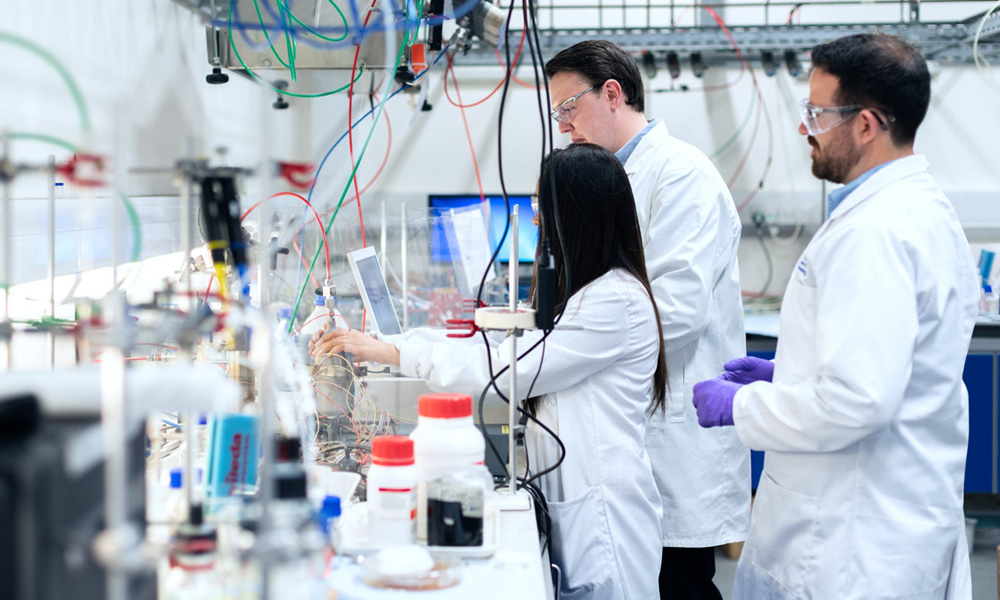
Image Credits: Pexels (Representational)
Edinburgh University Scientists Successfully Produce Nylon From Bacteria Without Any Harmful Byproducts
Writer: Reethu Ravi
Reethu, a story teller, a person often found between the pages of a book or contemplating the nuances of life.
India, 19 Aug 2020 8:50 AM GMT | Updated 19 Aug 2020 9:02 AM GMT
Editor : Shubhendu Deshmukh |
Shubhendu, the quint essential news junky, the man who loves science and politics in equal measure and offers the complete contrast to it by being a fan of urdu poetry as well.
Creatives : Abhishek M
" An engineer by profession, Abhishek is the creative producer of the team, graphic designing is his passion and travelling his get away. In more ways than one, he makes the content visually appealing."
Scientists from the University of Edinburgh developed a sustainable method of making adipic acid, one of the most valuable industrial chemicals in the world, which makes a crucial component of Nylon.
Scientists have developed a sustainable method to manufacture Nylon by discovering bacteria that can make a key chemical involved in the material's manufacturing, without emitting harmful greenhouse gases.
Scientists from the University of Edinburgh developed a sustainable method of making adipic acid, one of the most valuable industrial chemicals in the world, which makes a crucial component of Nylon.
Every year, over two million tons of Nylon is produced globally to make clothing, furniture and parachutes and has a market value of around £5 billion.
The scientists said that a sustainable production method for Nylon is urgently required as the industrial production of adipic acid depends on fossil fuels and produces large amounts of nitrous oxide, which is a greenhouse gas that is three hundred times more potent than carbon dioxide.
Scientists altered the genetic code of E.coli - a common bacteria - in the lab and grew the modified cells in liquid solutions containing guaiacol - a naturally occurring chemical.
The modified bacteria then transformed the guaiacol into adipic acid after an incubation period of 24 hours, without producing nitrous oxide.
The findings of the study were published in ACS Synthetic Biology and was funded by the Carnegie Trust and UK Research and Innovation.
"I am really excited by these results. It is the first time adipic acid has been made directly from guaiacol, which is one of the largest untapped renewable resources on the planet. This could entirely change how nylon is made," Jack Suitor, a PhD student in the University of Edinburgh's School of Biological Sciences and lead author of the study said in a statement by the University of Edinburgh.
Meanwhile, Dr Stephen Wallace, Principle Investigator of the study, and a UKRI Future Leaders Fellow said that microbes could help solve many problems facing society.
"If bacteria can be programmed to help make nylon from plant waste—something that cannot be achieved using traditional chemical methods—we must ask ourselves what else they could do, and where the limits lie. We are all familiar with the use of microbes to ferment food and beer—now we can ferment materials and medicines. The possibilities of this approach to create a sustainable future are staggering," Wallace said.
Also Read: Scientists Make Biodegradable Flip-Flops From Algae To Reduce Plastic Pollution In Oceans
 All section
All section














